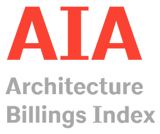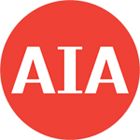AIA Survey Shows Firm Billings Strengthened To 12-Month High In January
 Washington, DC – Starting the year on a strong note, architecture firm billings growth strengthened in January to a level not seen in the previous twelve months according to a new report from The American Institute of Architects (AIA).
Washington, DC – Starting the year on a strong note, architecture firm billings growth strengthened in January to a level not seen in the previous twelve months according to a new report from The American Institute of Architects (AIA).
AIA’s Architecture Billings Index (ABI) score for January was 55.3 compared to 51.0* in December. Indicators of work in the pipeline, including inquiries into new projects and the value of new design contracts, also strengthened in January.
“The government shutdown affected architecture firms but doesn’t appear to have created a slowdown in the profession,” said AIA Chief Economist Kermit Baker, Hon. AIA, PhD. “While AIA did hear from a few firms that were experiencing
significant cash flow issues due to the shutdown, the data suggests that the majority of firms had no long-term impact.”
Key ABI highlights for
January include:
• Regional averages: South (54.7), Midwest (54.4), Northeast (52.4), West (51.5)
• Sector index breakdown: mixed practice (53.8), institutional (52.9), commercial/industrial (52.6), multi-family residential (52.6)
• Project inquiries index: 59.6
• Design contracts index: 53.8
Regional and sector categories above are calculated as a three-month moving average, whereas the national index, design contracts, and inquiries are monthly numbers.
*Every January the AIA research department updates the seasonal factors
used to calculate the ABI, resulting in a revision of recent ABI values.
About The American Institute Of Architects
 For over 150 years, members of the American Institute of Architects have worked with each other and their communities to create more valuable, healthy, secure, and sustainable buildings and cityscapes. Members adhere to a code of ethics and professional conduct to ensure the highest standards in professional practice. Embracing their responsibility to serve society, AIA members engage civic and government leaders and the public in helping find needed solutions to pressing issues facing our communities, institutions, nation and world. For more information, visit www.aia.org.
For over 150 years, members of the American Institute of Architects have worked with each other and their communities to create more valuable, healthy, secure, and sustainable buildings and cityscapes. Members adhere to a code of ethics and professional conduct to ensure the highest standards in professional practice. Embracing their responsibility to serve society, AIA members engage civic and government leaders and the public in helping find needed solutions to pressing issues facing our communities, institutions, nation and world. For more information, visit www.aia.org.